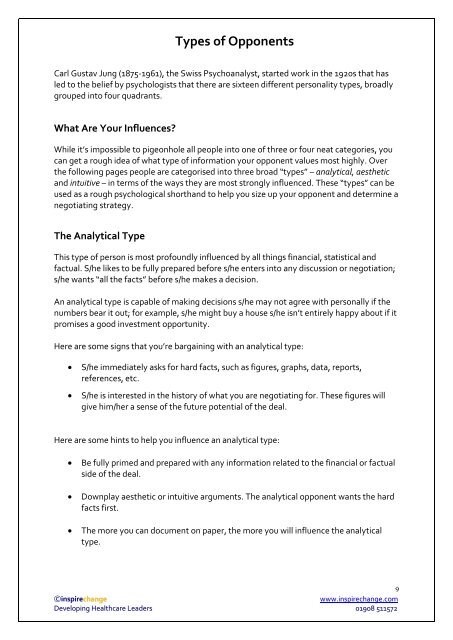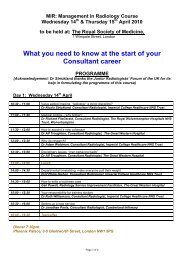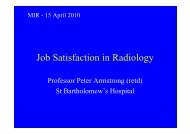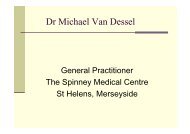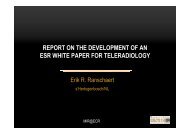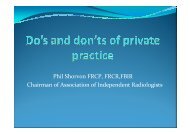Negotiating - MIR-Online
Negotiating - MIR-Online
Negotiating - MIR-Online
- No tags were found...
Create successful ePaper yourself
Turn your PDF publications into a flip-book with our unique Google optimized e-Paper software.
Types of OpponentsCarl Gustav Jung (1875-1961), the Swiss Psychoanalyst, started work in the 1920s that hasled to the belief by psychologists that there are sixteen different personality types, broadlygrouped into four quadrants.What Are Your Influences?While it’s impossible to pigeonhole all people into one of three or four neat categories, youcan get a rough idea of what type of information your opponent values most highly. Overthe following pages people are categorised into three broad “types” – analytical, aestheticand intuitive – in terms of the ways they are most strongly influenced. These “types” can beused as a rough psychological shorthand to help you size up your opponent and determine anegotiating strategy.The Analytical TypeThis type of person is most profoundly influenced by all things financial, statistical andfactual. S/he likes to be fully prepared before s/he enters into any discussion or negotiation;s/he wants “all the facts” before s/he makes a decision.An analytical type is capable of making decisions s/he may not agree with personally if thenumbers bear it out; for example, s/he might buy a house s/he isn’t entirely happy about if itpromises a good investment opportunity.Here are some signs that you’re bargaining with an analytical type:S/he immediately asks for hard facts, such as figures, graphs, data, reports,references, etc.S/he is interested in the history of what you are negotiating for. These figures willgive him/her a sense of the future potential of the deal.Here are some hints to help you influence an analytical type:Be fully primed and prepared with any information related to the financial or factualside of the deal.Downplay aesthetic or intuitive arguments. The analytical opponent wants the hardfacts first.The more you can document on paper, the more you will influence the analyticaltype.9©inspirechangewww.inspirechange.comDeveloping Healthcare Leaders 01908 511572


